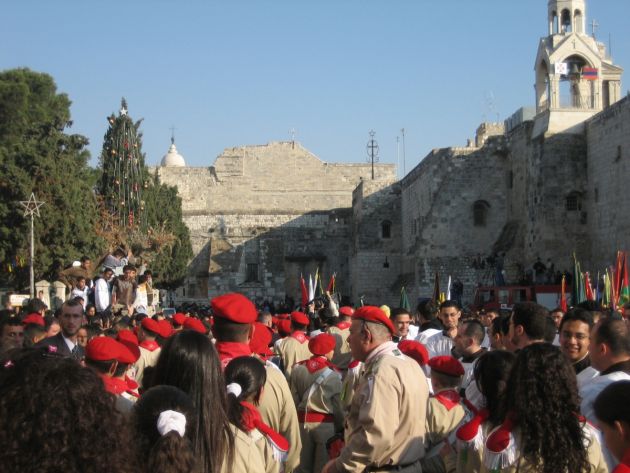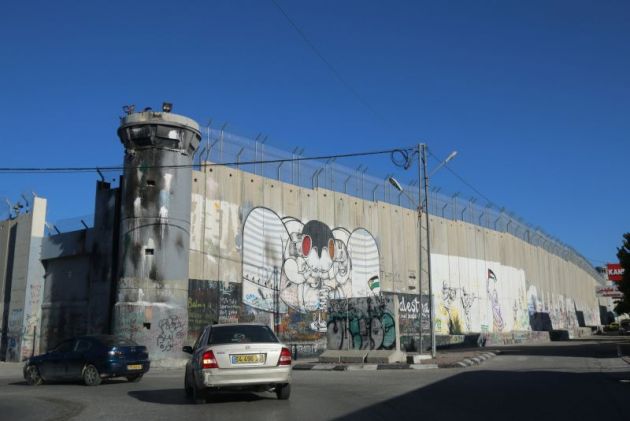Burkina Faso cancels Christmas after extremist attacks, while Christians flock to Bethlehem

Pope Francis delivered his yearly Christmas message at the Vatican while Christians from across the world celebrated the birth of Jesus in Bethlehem, but in Burkina Faso, attacks by extremists forced the cancelation of the feast.
In the West African country simultaneous attacks by extremist insurgents on a military base and Arbinda town in Soum province in the north of Burkina Faso resulted in the deaths of 35 civilians – almost all of them women – as well as seven soldiers.
President Roch Marc Christian Kabore declared 48 hours of national mourning, and all Christmas celebrations were canceled, the World Council of Churches reported.
WCC general secretary Rev. Olav Fykse Tveit lamented the death and suffering caused by the attacks, the deadliest in five years of escalating violence in Burkina Faso and elsewhere in the Sahel region.
"Even in the midst of our celebration of the birth of the Prince of Peace, such appalling attacks remind us that conflict and violence remain the daily reality for many communities", said Tveit.
"We pray for the victims of these attacks and their families, and for all the people of Burkina Faso and of the Sahel region, that they might be preserved from such brutality and freed from fear."
LETHAL ATTACKS IN THE SAHEL REGION
Since 2015 when violence began to spread across the Sahel region, Burkina Faso has experienced increasingly frequent and lethal attacks by extremist groups, with hundreds of people killed and an estimated 560,000 displaced.
A predominantly Muslim country, Burkina Faso also has a significant Christian population of some 20 percent.
In Bethlehem Christians from throughout the world gathered in the Palestinian city of Bethlehem in the West Bank to celebrate midnight mass.
The ceremony was held in Bethlehem's Church of the Nativity, built where Christians believe that Jesus was born, and that dates back to the fourth century AD, euronews reported.
The ceremony began with a procession by the Latin Patriarch of Jerusalem, Archbishop Pierbattista Pizzaballa, from Jerusalem to Bethlehem, emulating that made by Jesus's mother, Mary, as told in the Bible.
Pizzaballa delivered a homily about violence and divisions in the modern-day "Holy Land."
"Celebrating Christmas also means celebrating those who still have a desire to love mankind and put themselves on the line for it.
"Here in the Holy Land, and not only today but every day of the year, there are still many people who celebrate the Christmas of Jesus in this way, not only Christians. And to them go our most since thanks and encouragement to continue being the hope for all of us," he said.
Bethlehem is separated from Jerusalem by a heavily-fortified security barrier, a high wall in that part, but the city dews hundreds of thousands of tourists every year, especially during Christmas.
Attending the ceremony was Palestinian President Mahmoud Abbas and representatives of the many Christian denominations that have a presence in Israel and the Palestinian Territories.
In Rome, Pope Francis offered a message of hope during his Christmas Day Mass in St. Peter's Square, telling the thousands who attending that "the light of Christ is greater" than the darkness "in human hearts" and "in economic, geopolitical and ecological conflicts," Fox News reported.
Pope Francis cited the Syrian people "who still see no end to the hostilities that have rent their country over the last decade" and Israel, where Jesus "was born as the savior of mankind and where so many people -- struggling but not discouraged -- still await a time of peace, security and prosperity."
On migrants, Pope Francis said they were forced by injustice "to emigrate in the hope of a secure life."
Francis said their injustice continues along their journey toward finding acceptance.
The Pope said migrants often face abuse, enslavement, and torture in "inhumane detention camps" and death during dangerous sea excursions to find freedom elsewhere.
He called for the easing of crises in Lebanon and Iraq and the "grave humanitarian crisis" in Yemen.
The Pope noted that several countries in the Americas are "experiencing a time of social and political upheaval," citing the strife in Venezuela.
He offered prayers for those in several African nations, including where people have been "persecuted for their religious faith."
